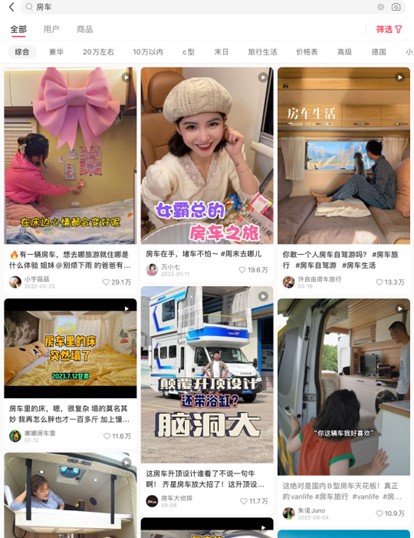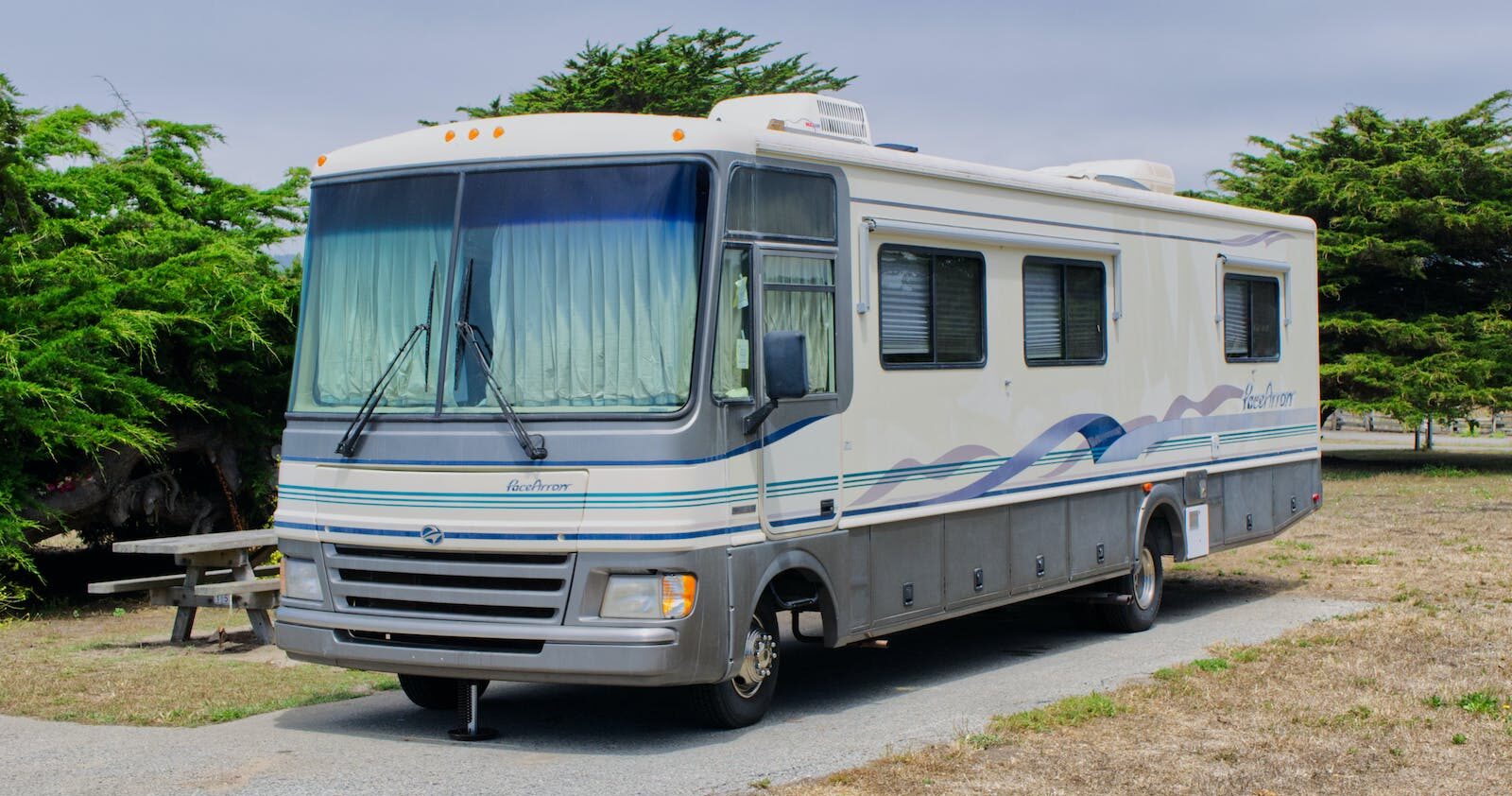With the growth of the national economy and the accumulation of personal wealth, domestic consumption continues to improve; the emergence of the middle class and the rise of affluent people has boosted recreational vehicle (RV) demand. China’s RV industry has been evolving since 2001, marking nearly two decades of development. Presently, China’s recreational vehicle market is experiencing its radical development; an abundance of RV manufacturers has emerged; and the number of RV camps has expanded at an accelerated rate, with sales increasing by 74% between January and November 2021.
Download our report on Gen Z consumers

Despite the rapid development of the RV market in China, consumer awareness of RV camping and RV products in tier-three and four cities remains relatively low. This has become a hurdle for future growth in the industry. Therefore, the key drivers of the RV market’s future expansion will be increasing consumer exposure to RV products, providing more test drive opportunities and experiential learning, and gradually improving RV travel’s supporting facilities and services.
China’s recreational vehicles market is tumultuous due to the pandemic
The growth of recreational vehicles in China lagged behind that of Europe and the United States. However, from the late 1990s to the beginning of the twenty-first century, China’s RV sales have gradually increased. This can be attributed to the increasing number of favorable regulations that have emerged in recent years, encompassing aspects such as RV camp and vehicle licenses, as well as tourism planning within the RV industry.
What are the recreational vehicle preferences of Chinese consumers?
According to the rental company rv2go, over 65% of RV owners are individuals aged 30 to 45, primarily parents residing in first- and second-tier cities. Their purpose is to employ these vehicles as mobile residences for serene family travels spanning the country. When it comes to their preferences, Chinese consumers tend to favor compact and versatile RVs that are easy to maneuver and park in cities with limited space. Therefore, RVs under 6 meters are the main choice of Chinese consumers. In 2022, RV sales of less than 6 meters accounted for more than 90%, while RV sales of more than 8 meters accounted for barely 1%.
Chinese RV consumers favor a variety of facilities
Additionally, Chinese consumers value comfort and amenities within their RVs, including features like air conditioning, heating systems, comfortable sleeping arrangements, kitchen facilities, and spacious bathrooms. Chinese consumers also appreciate advanced technology integration, such as smart home automation systems, multimedia entertainment centers, GPS navigation, and internet connectivity. Besides, they often prioritize eco-friendly and energy-efficient components, like solar panels and efficient water and waste management systems.
Customization and personalization options are also important to many Chinese consumers, allowing them to tailor the interior design and features to their individual preferences. On Xiaohongshu, some netizens showed that they added a giant bow or bathtub inside the RV. Meanwhile, some enthusiasts went to the extent of painting both the interior and exterior of their RVs entirely in pink.

Future prospect: the growth of tourism will lead to recreational vehicle development
The outlook for the future development of recreational vehicles in China appears promising, largely due to the anticipated growth of tourism, which has emerged as a significant component of contemporary Chinese society. In the first half of 2023, the total number of domestic tourists was 2.38 billion, a year-on-year increase of 63.9%, and the domestic tourism revenue was RMB 2.30 trillion, a year-on-year increase of 95.9%. The pandemic has reinforced the importance of connecting with nature and engaging in outdoor activities. As Chinese people seek to escape crowded cities, they are increasingly drawn to natural landscapes, national parks, and remote areas in China. RVs offer a unique opportunity to immerse oneself in these environments, providing access to remote camping sites and breathtaking scenic routes. The RV tourism industry has capitalized on the increasing demand for nature and outdoor experiences, strategically attracting more customers and expanding its array of offerings.
RV travel culture is prevalent among Generation Z
There are over 720 thousand posts regarding RV on Xiaohongshu, one of China’s largest social media platforms among the young. From the standpoint of consumer psychology, an RV is more than just travel equipment; it represents an RV travel culture. Unlike traditional means of transportation and accommodation, RVs allow tourists to be self-sufficient, bringing their accommodations along with them. This sense of mobility enables them to explore various destinations at their own pace, without the need for fixed itineraries or hotel bookings. Hence, many young consumers, particularly Generation Z, perceive the RV as a symbol of freedom and independence, representing a distinct way of life. The convenience and independence offered by RVs align perfectly with the desires of domestic tourists seeking unique experiences. Camping in RVs among the youth is poised to transform into a prevalent mode of both consumption and travel in the future.

Exploring China’s booming RV culture among young parents
- More than half of RV owners are parents between the ages of 30 and 45, who reside in first- and second-tier cities. They intend to utilize their vehicles as mobile residences for peaceful family travels across the country.
- When it comes to their preferences, Chinese consumers tend to favor compact and versatile RVs that are easy to maneuver and park in cities with limited space. Customization and personalization options are also important to many Chinese consumers, allowing them to tailor the interior design and features to their individual preferences.
- The future prospect for the development of RV in China is promising, largely due to the anticipated growth of tourism, which has emerged as a significant component of contemporary Chinese society.





